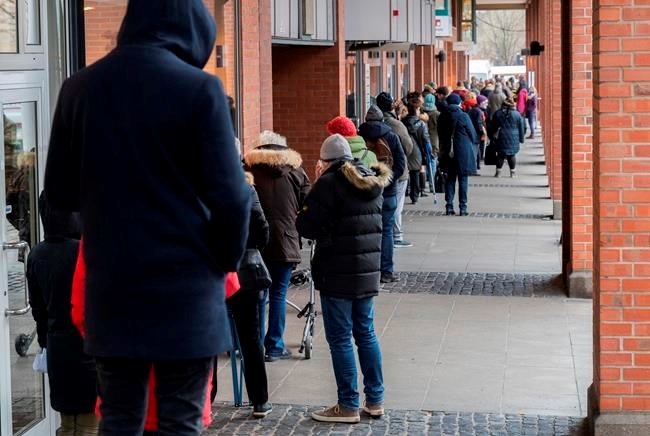BERLIN (AP) — German lawmakers overwhelmingly backed a bill Friday that requires staff at hospitals and nursing homes to get immunized against the coronavirus — the first of two vaccine mandates being considered in the country.
Health Minister Karl Lauterbach had earlier told parliament it was unconscionable that some who work with particularly vulnerable people were still not vaccinated.
“This vaccine mandate is necessary because it's completely unacceptable that, after two years of pandemic, people who have entrusted their care to us are dying unnecessarily in institutions because unvaccinated people work there,” he said. “We cannot accept this."
Of the 689 votes cast in the lower house on the measure, 571 were in favor and 80 were against. Abstentions were recorded for 38 lawmakers.
The bill, which is being fast-tracked, still needs to be approved by the upper house, which is likely to happen later Friday.
A second, more contentious bill that would make COVID-19 shots compulsory for all is being prepared and could be debated by parliament next month.
The far-right Alternative for Germany, or AfD, party is opposed to the universal vaccine mandate. Some members of other parties, including the former health minister in Angela Merkel's departed government, have also said they will vote against that measure.
AfD's co-leader Tino Chrupalla accused the new German government, which Wednesday, of undermining the public's trust by reversing assurances over the summer that there would be no vaccine mandates. He also warned that care workers who refuse to get vaccinated could quit their jobs if the shot becomes compulsory.
If the upper house, or Bundesrat, approves Friday's bill, workers in health care facilities will need to show they are fully vaccinated or have recovered from COVID-19 by mid-March next year.
Official figures show that about 69.4 % of Germany's population of 83 million are fully vaccinated.
Lauterbach, the new health minister, urged lawmakers to put aside party politics and support the bill, which also includes measures such as allowing pharmacists, vets and dentists to perform vaccinations, and the option to restrict sports and leisure events and close restaurants in regions with high case numbers.
“We have no time to lose,” he said.
Germany recorded 61,288 newly confirmed cases of COVID-19 over the past 24 hours, and 484 deaths. Doctors have warned that while the number of new infections are going down, the peak of hospitalizations is likely to be reached during the festive period.
Frank Jordans, The Associated Press


